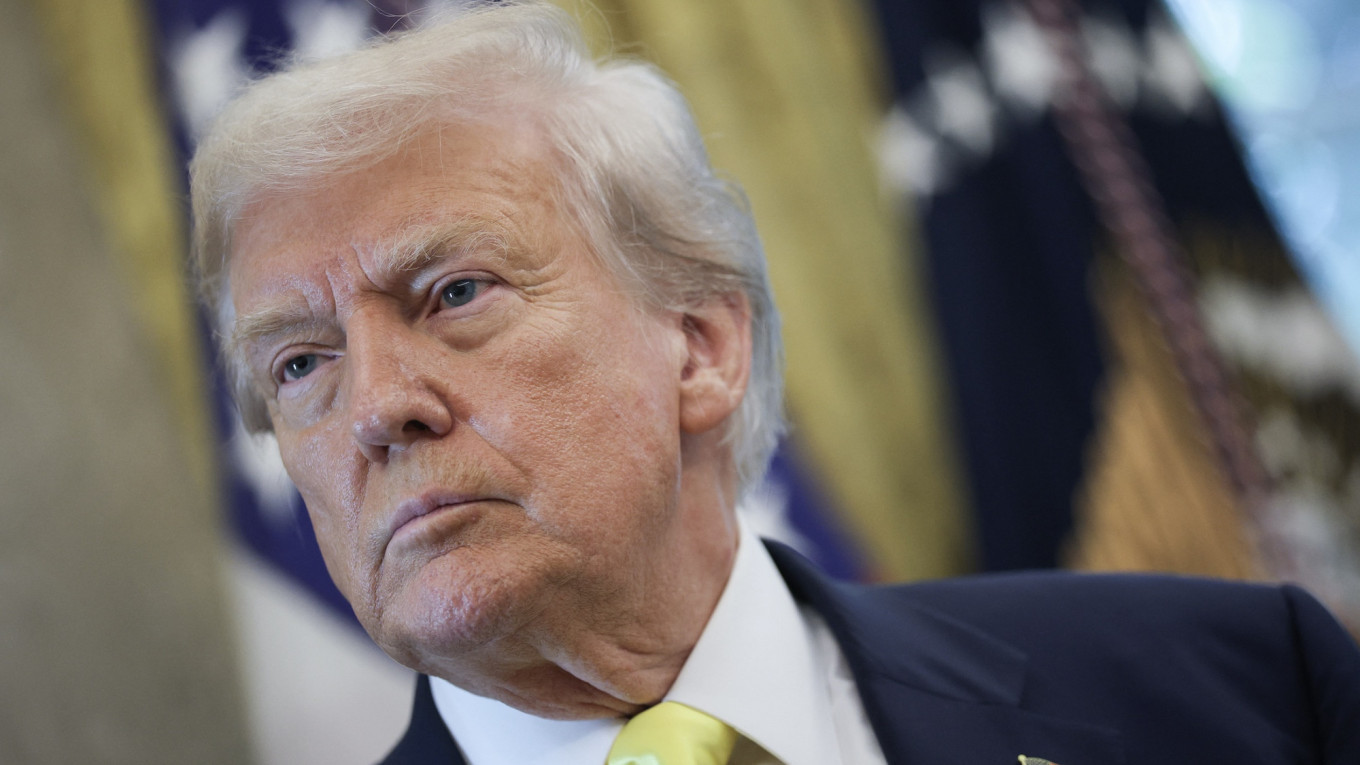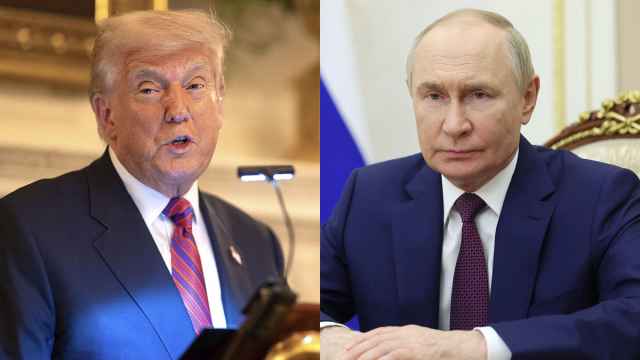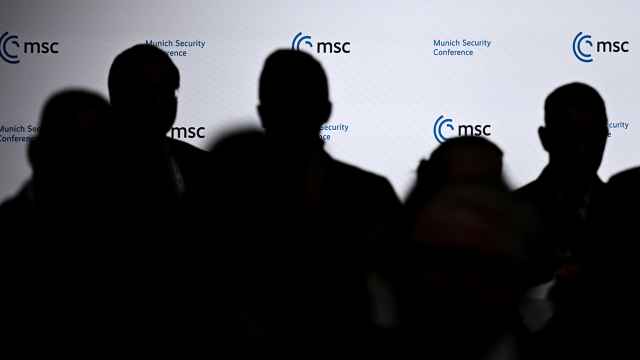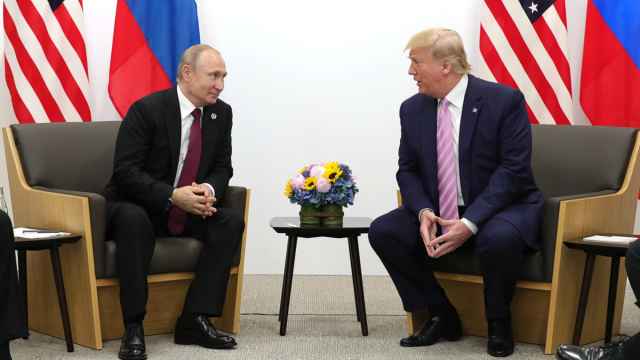The United States is ready to broaden tariffs targeting buyers of Russian oil — if the EU takes similar moves — to hit at revenue Moscow needs for the war in Ukraine, a U.S. official told AFP.
Dialing in to talks between U.S. and EU officials on Tuesday, President Donald Trump raised the possibility of tariffs between 50% and 100% on oil buyers such as China and India, said the official, who was not authorized to discuss these details publicly.
The talks come as EU sanctions envoy David O'Sullivan, who has spearheaded the bloc's global outreach on preventing Moscow's evasion of sanctions, is leading a delegation in Washington for meetings on Monday and Tuesday.
On Tuesday, Trump dialed in for discussions alongside Ukraine's prime minister, the U.S. official said.
"The source of the money for the Russian war machine is oil purchases by China and India," the official added. "If you do not get at the source of the money, there's no way to stop the war machine."
Also involved in talks were Treasury Secretary Scott Bessent and officials from the U.S. Trade Representative's office and State Department.
But the government official stressed that although Trump is "ready to go," he believes that "the EU has to be with us."
Besides potential tariffs, which were Trump's preferred option, officials also discussed the issue of immobilized Russian sovereign assets.
Trump had threatened on Sunday to impose more sanctions on Russia, after the Kremlin unleashed its biggest-ever aerial barrage at Ukraine.
He has also threatened to penalize countries that buy Russian oil, seeking to cut off a key revenue source for Russian leader Vladimir Putin's war. But so far, he has only hit India with so-called secondary sanctions.
"We want to get serious. We want to get this war over with, and so we're strongly encouraging our European friends to get moving," the U.S. official said Tuesday.
The EU is preparing a fresh round of sanctions on Russia, marking its 19th since Moscow's invasion in 2022. It has said that this should include more secondary sanctions targeting countries that help Moscow avoid punishment.
Germany and France are pushing to target Russian oil giant Lukoil as part of the new round of EU sanctions, diplomats said Monday.
Bessent wrote in a post on X after Monday's meeting that "all options remain on the table" as part of Trump's strategy to support peace negotiations between Moscow and Kyiv.
The Treasury Department did not immediately comment on Tuesday's talks.
A Message from The Moscow Times:
Dear readers,
We are facing unprecedented challenges. Russia's Prosecutor General's Office has designated The Moscow Times as an "undesirable" organization, criminalizing our work and putting our staff at risk of prosecution. This follows our earlier unjust labeling as a "foreign agent."
These actions are direct attempts to silence independent journalism in Russia. The authorities claim our work "discredits the decisions of the Russian leadership." We see things differently: we strive to provide accurate, unbiased reporting on Russia.
We, the journalists of The Moscow Times, refuse to be silenced. But to continue our work, we need your help.
Your support, no matter how small, makes a world of difference. If you can, please support us monthly starting from just $2. It's quick to set up, and every contribution makes a significant impact.
By supporting The Moscow Times, you're defending open, independent journalism in the face of repression. Thank you for standing with us.
Remind me later.






